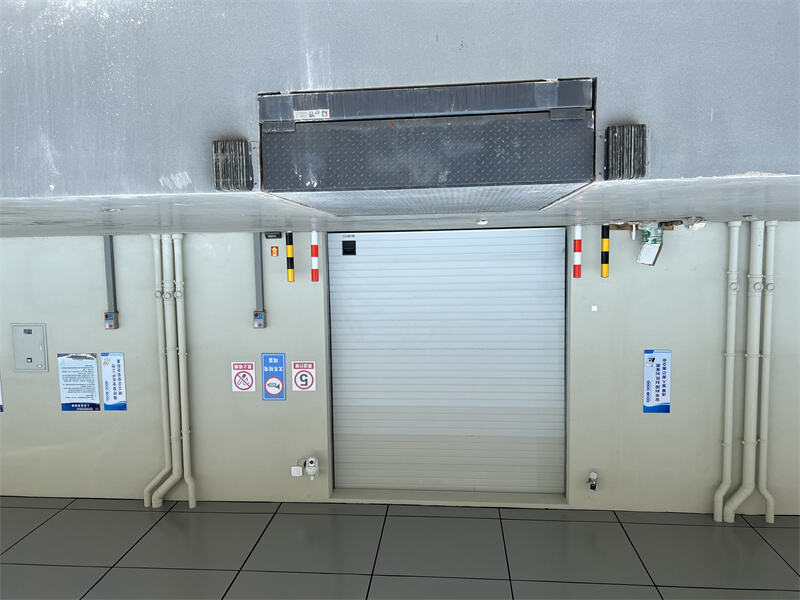Supply chain management together with logistics operations now place sustainability among their essential areas of focus. Global companies focus on finding ecological reduction methods that maintain both operational effectiveness and financial efficiency. The dock level door stands as one essential element for reaching sustainable logistics objectives. The operational efficiency of business operations depends on these doors which also helps reduce emissions by lowering energy usage. The article examines dock level doors as sustainable logistics solutions by demonstrating their effectiveness in preventing temperature-controlled dock energy waste and minimizing vehicle idleness to decrease emissions while providing cost-effective eco-friendly facilities over time.
Reducing Energy Loss in Temperature-Controlled Docks
The industry requires temperature-controlled docks to protect perishable food products and pharmaceutical compounds along with temperature-sensitive materials. Temperature-controlled docks experience energy wastage that results in spoiled goods, raised expenses and increased carbon emission. Temperature maintenance depends on dock level doors which operate as vital protection by stopping outside air from entering the space.
Modern dock level doors equipped with top-quality insulation capabilities help to substantially cut energy losses. The designed structure ensures complete closure that prevents temperature drift according to the stored products' nature. Modern advanced models of doors possess automatic finishing systems and detecting tools which operate to keep doors sealed during inactive periods to optimize energy efficiency performance.
The implementation of high-speed dock level doors helps decrease door opening times thus reducing the duration of facility temperature exposure to outside conditions. Fast operation stands as a great advantage for facilities that need to keep internal conditions stable under high demand conditions. Companies that use these controls realize major energy conservation together with decreased environmental impacts and secured product quality.
Minimizing Vehicle Idle Time for Lower Emissions
Greenhouse gas emission levels in the logistics industry rise substantially due to vehicles staying inactive. The waiting period of trucks at loading and unloading stations leads to significant CO2 and pollution emissions which negatively affect both air quality and the climate system. These emissions can be control through efficient usage of dock level doors because they promote streamlined loading and unloading functions.
Dock level doors engineered in current times work with vehicles in a streamlined manner to minimize vehicles' inactive time while at the unloading and loading positions. Dock levelers connected to vehicle restraints create a perfect dock-truck alignment which enables fast and secure goods transfer. Through proper scheduling systems and real-time monitoring these doors result in substantial reductions of wait time.
Automated dock level doors that adapt to upcoming truck arrivals accomplish additional reductions in idle periods. These systems notice approaching vehicles then adjust the docks for optimal preparation which enables instant start of the loading or unloading procedure upon truck arrival. Operational efficiency and reduced emissions function as dual benefits of minimizing idle time in corporate production. This achievement creates sustainable outcomes for logistics operations.
Long-Term Cost Savings for Eco-Friendly Facilities
The deployment of sustainable infrastructure systems results in major financial savings during prolonged time periods. The financial advantages of dock level doors comply directly with sustainability requirements. The greater upfront expense related to purchasing high-quality dock level doors structures into a more robust financial strategy because reduced energy expenses and decreased maintenance costs and improved operational efficiency outweigh initial investment costs in the long run.
Dock level doors that are energy-efficient help cut down climate control requirements thus resulting in reduced utility expenses. The stable environment provided by these doors reduces strain on heating and cooling systems which promotes longer equipment service and diminishes equipment maintenance expenses. Companies receive multiple governmental incentives together with rebates to reduce their initial investment when installing energy-efficient solutions.
The decrease of vehicle-idle time directly leads to both reduced energy consumption and reduced expenses for fuel. The reduction of truck station time decreases fuel usage so logistics companies experience direct financial advantages. Companies operating with reduced vehicle wear benefit from reduced maintenance expenses along with extended vehicle expected service life.
The implementation of sustainable practices helps improve corporate reputation which creates opportunities to gain environmentally-focused clients. Today's clients along with their business partners seek sustainable practices so companies which innovate to demonstrate environmental-friendly operations gain substantial marketing benefits.
Conclusion
Dock level doors serve as vital sustainability components which enhance the practices of sustainable logistics operations. Exploring these door solutions allows companies to reduce temperature-controlled dock energy waste and minimize vehicle delays which leads to enduring cost advantages and supplies a greener supply chain system. Advanced dock level door technology provides businesses a chance to achieve sustainability targets while improving operation efficiency and reducing costs as the logistics industry advances.



